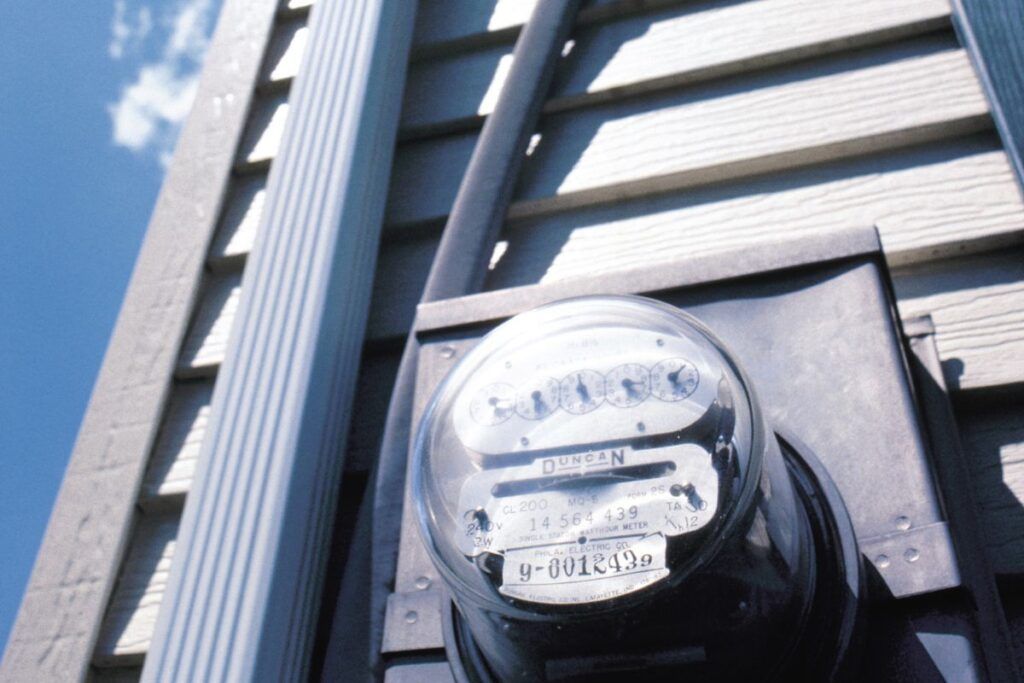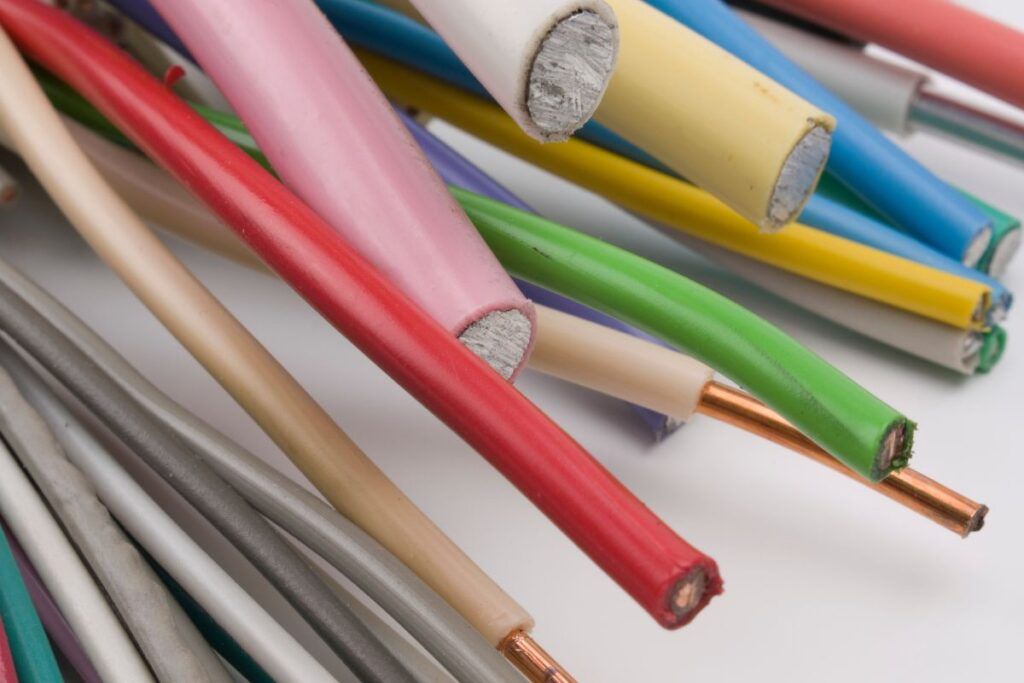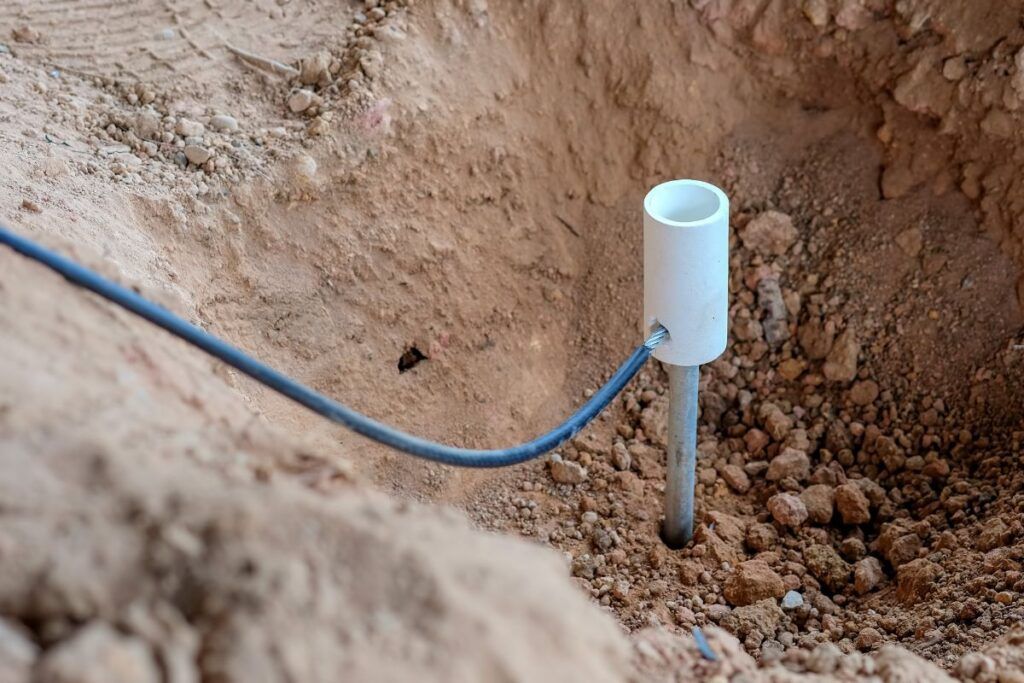While dealing with any electrical wiring, you must be careful and follow certain precautions. Using the right wire size is one of the most important precautions. This article is for you if you want to know the right wire size for an 80-amp breaker.
The right wire size for an 80 amp breaker is a 2 or 3-gauge wire. It is thick enough to carry the current produced by the 80 amps service. The 4 gauge wire is sometimes also considered the standard size for 80 amps. If you use aluminum wires, the size would be 1 or 2-gauge wire.
The wire size can vary based on factors like the wire material, distance, voltage drop, voltage, wire temperature, etc. So, it won’t always stick to 4 gauge wires. Read this article till the end to know everything about the wire size of an 80 amp service.

Check out our list of top-handpicked products for all your electrical, appliance, and HVAC system needs to keep your home running smoothly.
This post includes some affiliate links.What is an 80 amp service?
Generally, an 80 amp circuit breaker is used to power only heavy-duty electrical appliances, like welding machines, sump pumps, etc.
These appliances can also be powered by 20 amps, depending on the usage.
An 80 amp can also power large electric water heaters and furnaces.
But, an electrical service carrying 80 amps will also provide enough power and heat to a small home with very few electrical devices.
It can also power an electric range and dryer, along with the general lighting of the house.
If your house is small and you have only a few lights, fans, and electrical devices, then an 80-amp electrical service will be enough for your house.
If you have a large house with many electrical appliances, use an 80 amp circuit breaker to power devices, like the electrical water heaters, furnaces, kitchen appliances, etc.
What size of wire is needed for an 80 amp service?
You need quite a thick wire for an 80-amp service. The gauge size determines a wire’s thickness and diameter.
The gauge number represents the thickness and diameter of the wire.
A lot of people get confused when they see the gauge number.
You should know that the low gauge numbers are thicker than the high gauge numbers.
For example, a 2-gauge wire will be twice thicker than a 4 or 6-gauge wire.
That is how you choose the thicker wire for an 80 amp service.
The best wire size for an 80 amp service is a 2 gauge wire.
If your house is drawing nearly up to 80 amps, you should go for a 1 gauge wire.
You can also go for a 3 gauge wire if you use limited electrical devices, which is more than enough for 80 amps.
While selecting the right wire gauge for an 80 amp service, many factors require determination, like the wire material, the distance, voltage and voltage drop, temperature, etc.
Wire material
Two types of wires are mostly used for electrical purposes:
- Copper wires
- Aluminum or copper-clad aluminum wires
Copper wires are considered the best one than aluminum wires.
Coppers are great in conductivity and are resistant to heat and corrosion.
You can use them for longer distances without having much of a voltage drop.
On the contrary, aluminum wires are not a great conductor of electricity.
Aluminum wires get heated up very easily and, thus, cannot be used for longer distances, but they are good for short distances.
Some people still prefer aluminum as it is cheaper than copper.
Another aluminum version is copper-clad aluminum which contains some copper fittings at the end and provides some copper benefits.
The best copper wire size for an 80 amp service would be 2 or 3-gauge wire.
If you wish to replicate the copper quality with aluminum, you should opt for a much lower gauge, like 1 or 2.

Distance
The longer the distance, the higher the resistance.
If the resistance of the wire increases, it will become overheated.
So, to keep pace with the distance, you need to use a lower gauge, like a 1 or 2-gauge wire.
If the distance is long enough, use a 1 or 2-gauge copper wire.
It can carry current for longer distances without overheating or any interruption.
Avoid using aluminum or copper clads here.
Sometimes, 80 amp service with different voltages and distances will change the wire size of the service.
Here is a short table to help you out:
| Volts with 80 amps | Distance (in feet) | Wire size (copper) |
|---|---|---|
| 12 volts | 10 ft | 4 AWG |
| 120 volts | 10 ft | 3 AWG |
| 240 volts | 10 ft | 3 AWG |
| 480 volts | 10 ft | 3 AWG |
| 120 volts | 150 ft | 1 AWG |
| 120 volts (3-phase) | 150 ft | 2 AWG |
Voltage drop
If the distance increases, the voltage drop will also increase.
Generally, a voltage drop is the voltage loss caused due to the current flow during the resistance.
A longer wire will cause more voltage drops.
However, you must ensure that the voltage drop should not cross 5%.
Use a thicker gauge, like 1 or 2-gauge copper wire to manage the voltage loss.
Temperature
A 4 gauge copper wire can sometimes handle an 80 amp service.
But, the temperature of the wire can change the gauge size.
For example, a 3 gauge wire can easily carry 85 amps at 194°F.
But, at 167°F, the wire can only handle up to 75 amps.
So, you might need a slightly higher gauge, like 2 gauge copper wire, for handling amps between 75 and 90 at temperatures of 167 to 194°F.
What size of wire do you need for an 80 amp breaker?
The breaker size of 80 amps would differ from that of an 80 amp service.
To run an 80 amp circuit breaker, you need a 4 gauge wire.
Such a thick wire will be enough to run the breaker and the appliances connected to the breaker, like furnaces or electric water heaters.
A 4 gauge wire in an 80 amp circuit breaker will keep your furnaces and heaters from overheating and fire hazards.
A 4 gauge wire produces 12 volts at 80 amps at a distance of 10 feet.
If you are using copper wire, a standard wire size would be 2 or 3-gauge copper wire.
But most people cannot afford it due to its high price, and thus, they go for a 4 gauge wire.
To be more efficient, you must be sure to have the same hot, neutral, and ground size.
If the hot and neutral are 4 gauge wire, the ground must be a 4 gauge wire too.
What size of ground wire do you need for an 80 amp service?

The ground wire for an 80 amp service would be a 4 gauge.
The ground wire does not have to be the same size as the hot and neutral wires.
Since the neutral wire transfers the exact electricity to the main power source as the hot wire, both have to be the same size.
On the contrary, a ground wire only carries power when there is a short circuit.
The electricity will want an alternate path for the extra current flow during the short circuit.
That is when the ground wire will carry the current.
Since a short circuit is rare, a 4 gauge ground wire will be enough.
However, if you use aluminum wires, you will need a 3 gauge wire.
What size of wire do you need for an 80 amp sub-panel?
The wire size of an 80 amp sub-panel would be the same, i.e., a 2 gauge copper wire or 1 gauge aluminum wire.
You need to be very careful about wiring a breaker in your house.
Using the right wire size can help to avoid serious accidents.
Another vital step is to install the wires properly.
Including a sub-panel can reduce the load of the breaker and keep everything under control.
How do you calculate the right breaker and wire size?

Calculating and finding the right wire gauge for an 80 amp service is quite a math.
First, you must find the total wattage of the appliances running in your home.
Divide the result by the voltage and multiply the final figure by 125%.
You will get an appropriate breaker size for your service.
But since you already know that the breaker size here is 80 amps, you need the right gauge.
Various sites have shared a table or chart sharing the appropriate wire size for the different amp breakers.
It will also tell you the right wire size based on the wire material, i.e., copper and aluminum, the wire temperature, distance, and voltage.
Just make sure to avoid going for thinner wires.
The standard size of an 80 amp service is 4 gauge copper wire.
You can use the gauge with low numbers but do not exceed 4.
What does the NEC say about it?
The NEC, or National Electric Code, recommends using a wire gauge between 4 AWG and 2 AWG for 70 to 80-amp circuits.
However, you must check the NEC 320.15 as they keep changing the wire size.
But the ampacity requirement will remain the same.
If you have a high number wire gauge at a house with an 80 amp service, hire an electrician to change the wire as soon as possible before any accidents.
The exact size depends on the material, distance, and temperature.
You must follow the NEC rules if your region lacks local codes.
But, if you have local codes that are quite different from the NEC rules, you must prioritize the local codes and ignore the NEC.
A table of different wire sizes for 80 amps
The chart here will help you know the right wire size depending on the voltage, phase, and distance.
I considered the voltage drop to be around 3%.
Single phase
120V
| Distance in feet | Copper wire size | Aluminum wire size |
|---|---|---|
| 50 ft | 3 AWG | 1 AWG |
| 75 ft | 3 AWG | 1 AWG |
| 100 ft | 3 AWG | 1 AWG |
| 200 ft | 1/0 AWG | 3/0 AWG |
| 250 ft | 2/0 AWG | 4/0 AWG |
| 300 ft | 3/0 AWG | 250 MCM |
240V
| Distance in feet | Copper wire size | Aluminum wire size |
|---|---|---|
| 50 ft | 3 AWG | 1 AWG |
| 75 ft | 3 AWG | 1 AWG |
| 100 ft | 3 AWG | 1 AWG |
| 200 ft | 3 AWG | 1 AWG |
| 250 ft | 2 AWG | 1/0 AWG |
| 300 ft | 1 AWG | 2/0 AWG |
480V
| Distance in feet | Copper wire size | Aluminum wire size |
|---|---|---|
| 50 ft | 3 AWG | 1 AWG |
| 75 ft | 3 AWG | 1 AWG |
| 100 ft | 3 AWG | 1 AWG |
| 200 ft | 3 AWG | 1 AWG |
| 250 ft | 3 AWG | 1 AWG |
| 300 ft | 3 AWG | 1 AWG |
3-phase
120V
| Distance in feet | Copper wire size | Aluminum wire size |
|---|---|---|
| 50 ft | 3 AWG | 1 AWG |
| 75 ft | 3 AWG | 1 AWG |
| 100 ft | 3 AWG | 1 AWG |
| 200 ft | 1/0 AWG | 3/0 AWG |
| 250 ft | 2/0 AWG | 3/0 AWG |
| 300 ft | 2/0 AWG | 4/0 AWG |
240V
| Distance in feet | Copper wire size | Aluminum wire size |
|---|---|---|
| 50 ft | 3 AWG | 1 AWG |
| 75 ft | 3 AWG | 1 AWG |
| 100 ft | 3 AWG | 1 AWG |
| 200 ft | 1/0 AWG | 3/0 AWG |
| 250 ft | 2 AWG | 1/0 AWG |
| 300 ft | 2 AWG | 1/0 AWG |
480V
| Distance in feet | Copper wire size | Aluminum wire size |
|---|---|---|
| 50 ft | 3 AWG | 1 AWG |
| 75 ft | 3 AWG | 1 AWG |
| 100 ft | 3 AWG | 1 AWG |
| 200 ft | 3 AWG | 1 AWG |
| 250 ft | 3 AWG | 1 AWG |
| 300 ft | 3 AWG | 1 AWG |
Final thoughts
The right wire size for an 80 amp service depends on the wire type, voltage drop, distance, temperature, etc.
Generally, a 2 gauge wire is the best one for 80 amps.
But you can also use a 4 or 3-gauge wire for it.
If you use aluminum wires, always use 1 or 2-gauge wire to work the same as copper.
Copper wires have better ampacity and conductivity than aluminum.
That is why you must choose an aluminum wire gauge double the size of copper.
The right size of ground wire and 80 amp breaker wire is 4 gauge copper wire.
Ensure that the hot, neutral, and ground wires are the same size.
Related Articles:
- Wire Size For 50 AMP Service: Complete Table And Chart
- What Size Wire Do I Need For 125 AMP Service?
- What Size Wire Do I Use For 150 AMP Service?
- Wire Size For 100 AMP Service: Complete Table And Chart
- Wire Size For 200 AMP Service: Complete Table And Chart
- Wire Size For 400 Amp Service: Complete Table And Chart
- Size Of Ground Wire For 200 Amp Service: Complete Guide With Table
FAQs
Can I use an 8 gauge wire for 80 amps?
An 8 or 6-gauge wire would not be enough for 80 amps.
A 6 gauge wire is safer for 75 amps but not for 80 amps.
To avoid overheating, you must opt for at least a 4 gauge wire for 80 amps.
People use 2 or 3-gauge wires to remain safer.
What wire size should I use for a 100 amp sub-panel?
If the wires are provided from a 60 amp breaker, you can feed the 100 amp sub-panels using a 6 gauge wire.
What size of wire should I use for 100 amps?
100 amp is considered a standard electrical service for homes.
You can use a #4 gauge copper wire or a #2 gauge aluminum wire.
Make sure that the voltage drop remains around 3%.
Data Source: National Electrical Code, NEC Wire Table, Electrical wiring, Home wiring.


